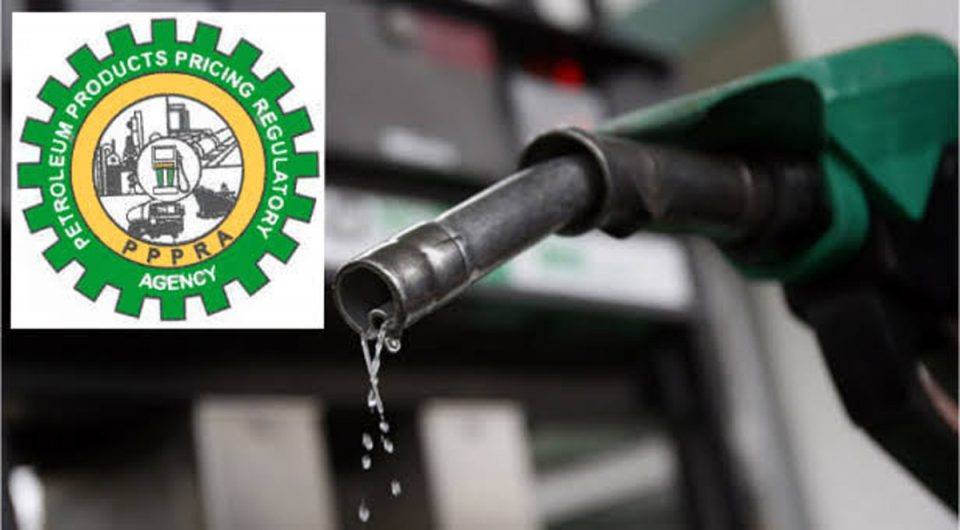The federal government, today, July 1, increased the pump price of Premium Motor Spirit (PMS) also known as petrol to N140.80 per litre.
Current rates represents N19:30k increment from the N121.70 price band fixed by the government last month
The Petroleum Products Pricing Regulatory Agency (PPPRA),announced the latest reduction in fuel price through a memo with reference number A.4/9/017/C.2/IV/705 signed by its executive secretary,Abdulkadir Saidu and addressed to marketers in the country.
The memo,sighted by Daily Independent enjoined marketers not to sell fuel beyond N140.80 to N143.80 per litre price bracket.
The memo: “Advised Price for Premium Motor Spirit (PMS) in the month of July ” dated July 1,2020 reads: “Please recall the provision for the establishment of a monthly price band within which petroleum marketers’ realistic operating cost costs,as much as practicable,we wish to advise a new PMS pump price bans of N140:80-N143:80 litre for the month of July 2020.
“Kindly note that the ex-depot for collection includes the statutory charges of Bridging Fund,Marine Transport Average,National Transport Allowance(NTA) and the Administrative Charge.All marketers are advised to operate within the indicative prices as advised by the PPPRA.”
Oil marketers had expressed concern over the power vested in PPPRA to fix fuel prices in the deregulation regime,saying the development was awkward.
They added that such price fixing by the agency had cost them several billions of naira which is difficult to recover because of the prevailing environment.
They also lamented that despite PPPRA’s removal of price cap on petrol,multiple exchange rates and window have prevented them from breaking even in Nigeria
But the Petroleum Products Pricing Regulatory Agency (PPPRA),in its latest statement claims it is no longer fixing the pump price of Premium Motor Spirit (PMS) also known as petrol for marketers.
Its executive secretary, Saidu Abdulkadir, however, said the agency would constantly, on a monthly basis, develop a guiding price for the commodity, with which it would advise marketers.
He noted that the deregulation of the downstream sector was dependent on the enforcement of appropriate laws by strong regulatory agencies, hence its continued intervention.
“For the purpose of emphasis, let me reiterate that different sectors of the polity operate under the guidance of national regulators.
“The Central Bank of Nigeria (CBN) regulates the banks and the financial sector; Nigerian Communication Commission (NCC) regulates telecommunications; National Insurance Commission (NAICOM) regulates the insurance sector and the same exists for operators in Nigeria’s downstream petroleum sector.
“To this end, it is not out of place for the Agency to provide a guiding price band with the aim to protect consumers against price gouging.
“It is important to also state that there is nowhere in the world that deregulation means total lack of control, supervision or oversight.
“While the Market-Based Pricing Regime is a policy introduced to free the market of all encumbrances to investment and growth, it should not be misconstrued to mean a total abdication of government’s responsibility to the sector and citizenry,” he said.
Mr Abdulkadir said that the PPPRA no longer fix prices, but rather provide a guiding price band by monitoring petroleum products prices daily.
This, he said was being done using the average price of the previous month to determine prices for the following month, for appropriate cost-reflective pricing that ensures reasonable returns to Oil Marketing Companies (OMCs).
“This methodology is in line with international best practices which range from bi-monthly to monthly price reviews.
“Nigeria adopted the monthly review model considering the average duration for the importation of petroleum products into Nigeria from the closest spot market; North West Europe (NWE) to West Africa (WAF) is about 30 days.
“This period encompasses the Import Financing Process to delivery at retail outlets,” he added
He further said that the new pricing regime would encourage oil marketers to resume supply of petrol, leading to further value creation in the downstream; foster job creation and ensure reasonable returns for investors.
According to him, it will create healthy competition among marketers, enhance value for consumers and make funding available for other important infrastructure.
He said that the PPPRA would continue to regulate the downstream petroleum industry, irrespective of the deregulation of the sector.
Abdulkadir said this would also prevent petroleum products marketers from exploiting consumers and help to enforce the appropriate laws guiding the industry.
On code of conduct for oil marketers, he said that although crude oil price and petroleum products prices were positively correlated, the prices of petroleum products do not increase or reduce correspondingly with changes in crude oil price.
He noted that the pump price will be a reflection of the international market prices of petroleum products that were also rising.
Abdulkadir further stated that in line with its laws, the PPPRA developed Guidelines for Petroleum Products Commercial Framework and was drawing up Code of Conducts for Operators in the new pricing regime.
He also added that the PPPRA was finalising the review of cost elements and profit margins on the pricing template for marketers, to reflect the current market-driven pricing regime which was last reviewed in 2016.




